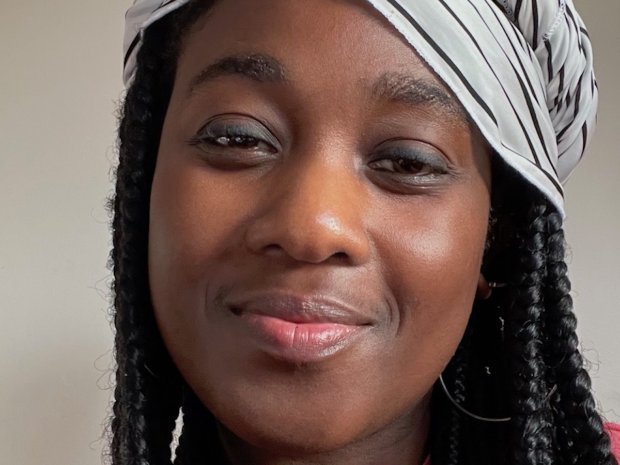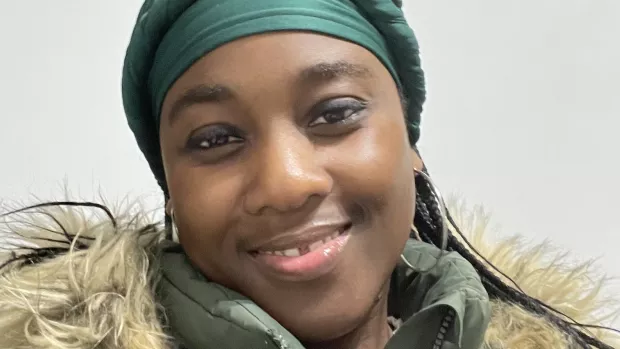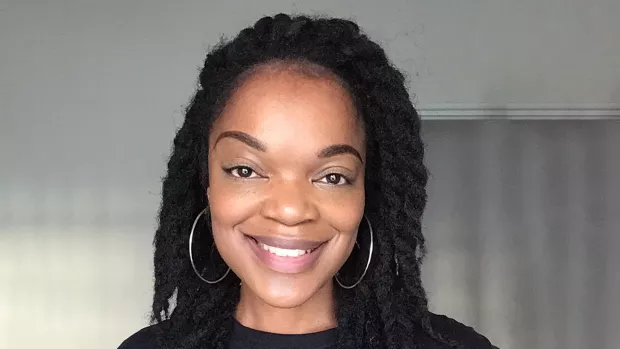
Black MS: What I wish I’d known
The moment my MS diagnosis was confirmed in November 2016, my whole world flipped upside down.
An impostor had made itself a home in my body and turned my body against me. It felt like an out-of-body experience. Like I was watching myself walk away from the old me, the healthy me.
I had, and still have, an amazing and supportive MS specialist medical team, the best in fact. Yet I’ve still found myself desperately seeking answers why this happened to me.
However, what I wasn’t prepared for was some of the answers hidden inside Pandora’s box.
A lack of information about being Black with MS
It was clear to me that there was no known cure for MS just yet. And it was no secret that there was a lack of information about MS in the Black community.
I wasn’t surprised when an A and E doctor assessing my hospital notes at the beginning of the year said to me, “how unlucky you are to have MS, Black people usually have sickle-cell, it’s White people that usually get MS”.
I don’t know why that made me smile, but it did.
What I wish I'd known
What I wish I’d known was US studies have shown African Americans with MS may have a more aggressive disease course and may progress more rapidly than White Americans with MS. And Black women might have a higher risk of getting MS compared to White women.
What I wish I’d known was that Black people, in general, are less likely to participate in medical trials and research. Which is part of the reason why there’s a lack of evidence to show how disease moderating therapies (DMTs) can affect people with MS who are Black. Therefore, I had to choose a DMT that was based on mainly White biology. I was literally going in blind in the hope that these DMTs would work for me.
So there it was! Not only is MS a complex disease that behaves differently in every individual living with it, but it also came in different colours.
Looking for my Black MS community
When I started learning what a future with MS may look like for me, I started to seek other fellow MSers in the Black community to see how they were living their lives with MS.
I looked on YouTube in the hope I would find someone with a Black ethnic background documenting their MS journey or experience. But at the time I couldn’t find anyone. Although I was grateful to all the White people who shared their MS experiences online, especially on YouTube, it didn’t stop me feeling alone.
As someone newly diagnosed with MS my mind played tricks with me and I felt like I was the only Black person in the world that had MS. Silly right? But at the time it felt so real.
Shining a light on the Black MS community
Thankfully, things are now changing. And I have noticed that more and more people from Black ethnic backgrounds are speaking more about their MS experiences online. I’ve been blessed with connecting with a few of them on social media platforms such as Instagram and Facebook.
In August 2020, just days before my birthday, I decided to start an Instagram account solely based on my MS journey and experiences called The Nerve of my MS. Later I started a YouTube channel with the same name in the hope that MS sufferers from Black ethnic backgrounds would find me and connect with me, whether newly diagnosed or a couple to many years in.
My mission is to shine a light on Black representation in the MS community. No one from Black ethnic backgrounds needs to feel lost, as well as alone like I did when I was newly diagnosed with MS in 2016.
Will you share your story?
This Black History Month the theme is about celebrating and sharing the pride people have in their heritage and culture – in their own way, in their own words.
If you'd like to share your story, use our story form to tell us about yourself, and why you're Proud to be. And what it means to you.
You could share your personal story, write about representation, or talk about a Black person in history who makes you proud to be who you are.
Share your story of why you're Proud to be
We're committed to sharing MS stories all year round so even if you don't think your story is for Black History Month we welcome you to share it anyway.
We will always check back with you before sharing anything you tell us online.



